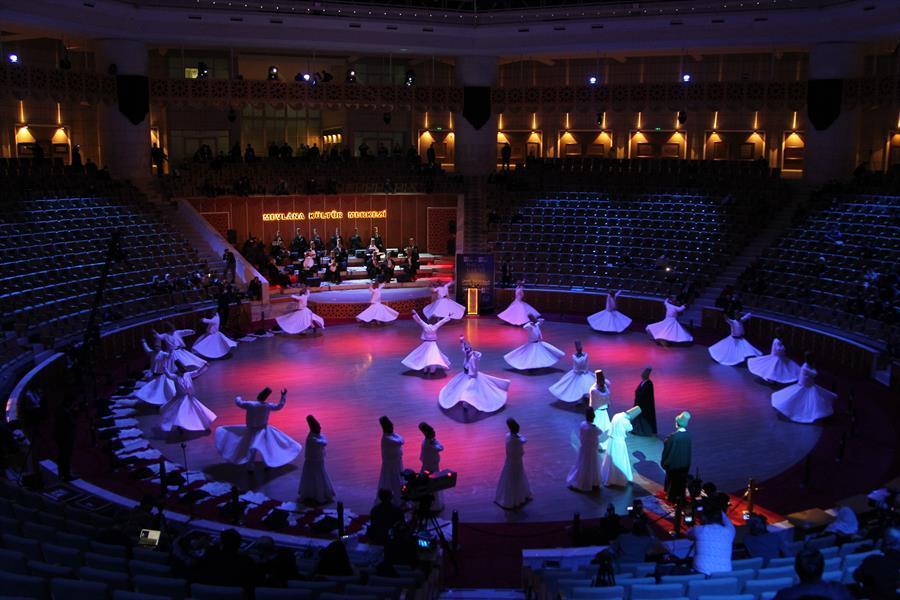
Mevlâna Jalaluddin Rumi, also known as Jalal ad-Din al-Rumi, a man of thought and a Sufi known all over the world for his teachings, has been commemorated on the 747th anniversary of his death.
Parliament Speaker Mustafa Şentop and Turkey’s Culture and Tourism Minister Mehmet Nuri Ersoy attended the commemoration ceremony marking the anniversary of Rumi’s death, known as the Şeb-i Arus, or the night of union which is held in the Central Anatolian province of Konya on Dec. 17 every year.
The ceremony, which was held without an audience and for one hour due to the pandemic, started with the Gülbank prayer in front of his tomb at the Mevlâna Museum.
Some 35 foreign journalists also followed the events that continued with a sema ceremony at the Mevlâna Cultural Center.
“A Sufi, but on the day he passed away to this world, a Sufi who was cried out not only by Muslims but also by Christians and other faith members,” Şentop said in a speech he made following the event.
Ersoy said that Rumi left a unique life as a legacy to humanity.
“We are trying to understand, explain and live Rumi. While there is a guide who has sought and found good among ourselves, and made countless people find it, there is no more truth than referring to it,” Ersoy said.
Born into in a Turkic family present-day Afghanistan in 1207, Rumi is one of the most widely read philosophers across the world, whose teachings have transcended boundaries of race, color and religion.
With his book Masnavi, which was penned after losing his close friend, a wandering dervish called Shams Tabrizi, Rumi focused on tolerance and divine love, building a religious legacy which has a worldwide influence.
The Masnavi poem, with its more than 50,000 verses, is considered the most influential work on Sufism, and has been translated into 26 languages, including Turkish, English, French, Spanish and Arabic, from its original Persian.
The poem, which consists of stories inspired by the Quran’s teachings and Prophet Muhammad’s morals, was last translated into Kyrgyz.
Apart from the famous Masnavi, Rumi also wrote Divan-i Kabir, which consists of over 40,000 verses of lyric poems.
The scholar is buried in Konya, where he lived most of his life, produced his works and died on Dec. 17, 1273.
Upon his passing, Rumi’s followers founded the Mevlevi Order, famous for the Sufi dance known as the Sema ceremony.
Every year, an international commemoration ceremony marking the anniversary of Rumi’s death is held in Konya between Dec. 7-17 as a reverence to the Muslim scholar.